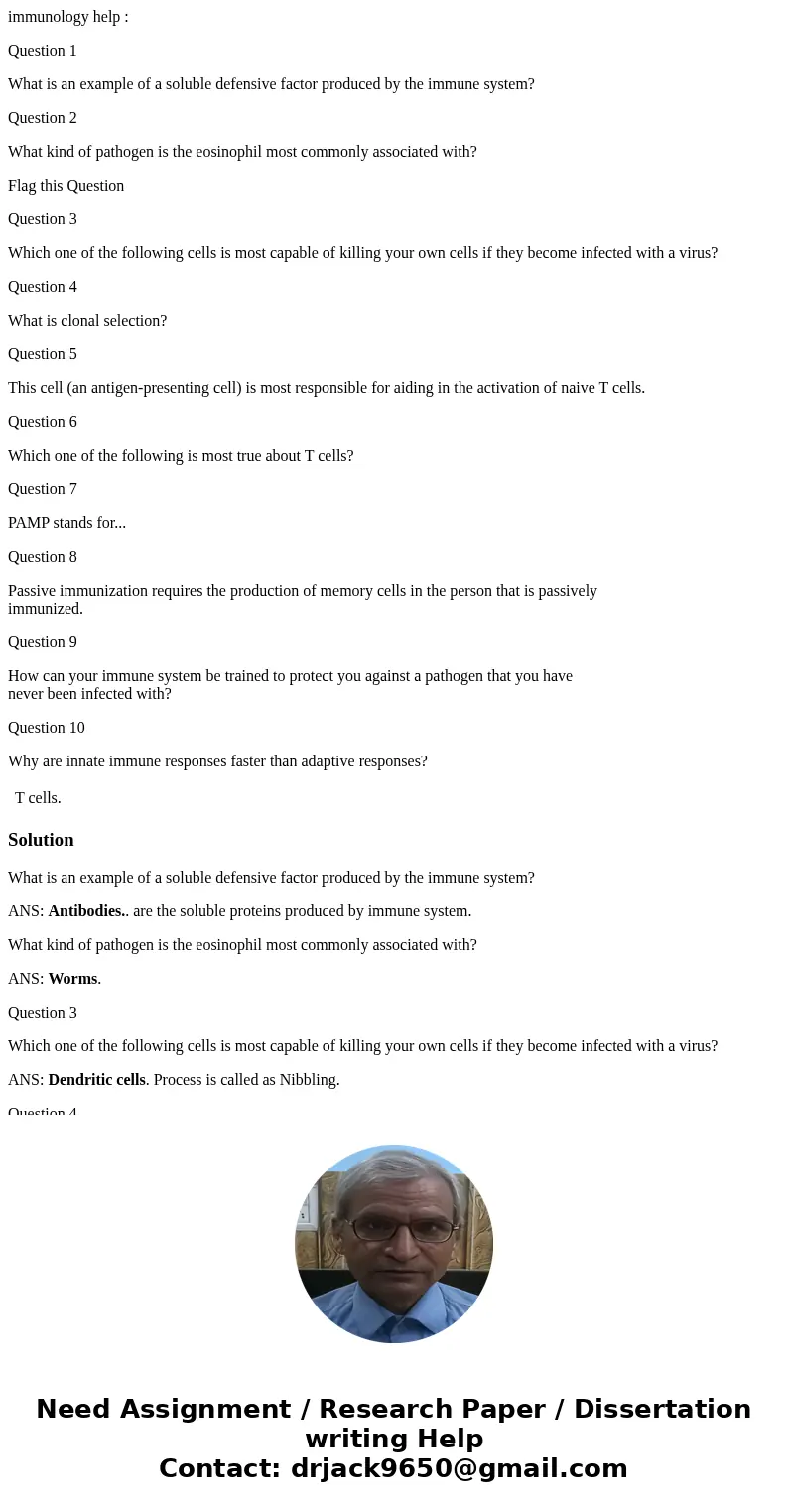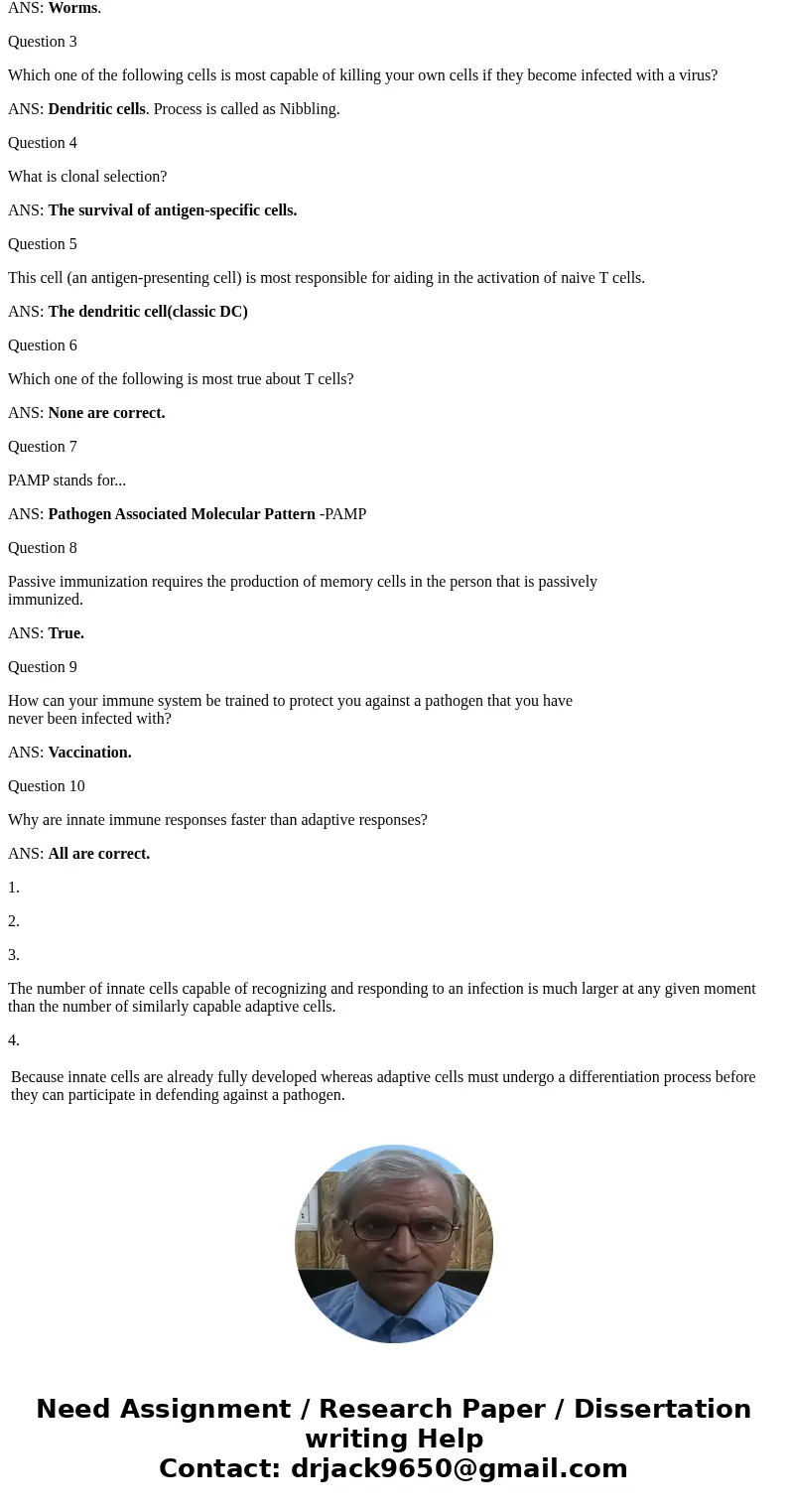immunology help Question 1 What is an example of a soluble
immunology help :
Question 1
What is an example of a soluble defensive factor produced by the immune system?
Question 2
What kind of pathogen is the eosinophil most commonly associated with?
Flag this Question
Question 3
Which one of the following cells is most capable of killing your own cells if they become infected with a virus?
Question 4
What is clonal selection?
Question 5
This cell (an antigen-presenting cell) is most responsible for aiding in the activation of naive T cells.
Question 6
Which one of the following is most true about T cells?
Question 7
PAMP stands for...
Question 8
Passive immunization requires the production of memory cells in the person that is passively
immunized.
Question 9
How can your immune system be trained to protect you against a pathogen that you have
never been infected with?
Question 10
Why are innate immune responses faster than adaptive responses?
| T cells. |
Solution
What is an example of a soluble defensive factor produced by the immune system?
ANS: Antibodies.. are the soluble proteins produced by immune system.
What kind of pathogen is the eosinophil most commonly associated with?
ANS: Worms.
Question 3
Which one of the following cells is most capable of killing your own cells if they become infected with a virus?
ANS: Dendritic cells. Process is called as Nibbling.
Question 4
What is clonal selection?
ANS: The survival of antigen-specific cells.
Question 5
This cell (an antigen-presenting cell) is most responsible for aiding in the activation of naive T cells.
ANS: The dendritic cell(classic DC)
Question 6
Which one of the following is most true about T cells?
ANS: None are correct.
Question 7
PAMP stands for...
ANS: Pathogen Associated Molecular Pattern -PAMP
Question 8
Passive immunization requires the production of memory cells in the person that is passively
immunized.
ANS: True.
Question 9
How can your immune system be trained to protect you against a pathogen that you have
never been infected with?
ANS: Vaccination.
Question 10
Why are innate immune responses faster than adaptive responses?
ANS: All are correct.
1.
2.
3.
The number of innate cells capable of recognizing and responding to an infection is much larger at any given moment than the number of similarly capable adaptive cells.
4.
| Because innate cells are already fully developed whereas adaptive cells must undergo a differentiation process before they can participate in defending against a pathogen. |


 Homework Sourse
Homework Sourse